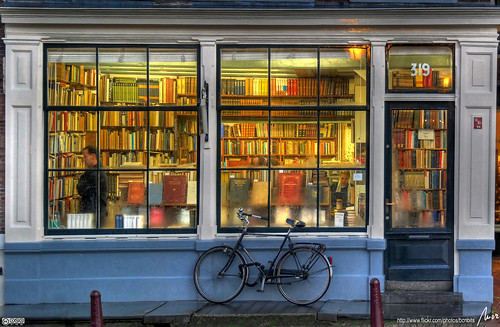
Ron Benrey (@ronbenrey), posting on the blog Fiction After 50, lays out a rational approach to the art of pricing ebooks.
At first, we couldn’t understand why someone willing to spend $18 for two movie tickets would recoil at spending 10 bucks on an ebook. After all, a movie is a one-time event, whereas an ebook can be read again and again (and, with some ereaders, lent to other people).
We then we thought some more...
1. We paid for our ebook readers (which makes an ebook more like renting a DVD than going to a first-run movie).
2. Even more important, we know that ebooks (unlike movies, library books, or paper-back books) are cheap to produce. We think it’s unfair for a publisher to charge the same price for an ebook as for a paper book.
All at once, the penny dropped (as the Brits say). We began to understand why customers might perceive three to four bucks as a fair price for an ebook. They are doing an instinctive cost analysis and realizing that an ebook selling at $2.99 and a trade paper book selling for $14.99 can net a publisher the same profits. (This is eerily close to the truth when you consider the cost of printing, transportation, distribution, warehousing, and returns.)
Simply put ... there’s no reason for a publisher to charge 15, 20, even 25 dollars for an ebook — other than a seriously overdeveloped profit motive.
Do you agree with him?
You’ll also want to read his post “eBook ‘Tipping Points’”








